Bill Maher is known for pushing boundaries, criticizing and provoking both political wings, and for hosting conversations on a wide variety of important topics. During his April 21 2023 “Real Time” HBO show, Mr. Maher seemed startled as he read the headlines from a recent newspaper piece:
“One in three children in America can not read at a basic level of comprehension.”
“Eighty-five percent of black students lack proficiency in reading skills.”
Earlier in the show, Maher and his guests, professors Glenn Loury and Daniel Bessner, were discussing some of the causes of our national dysfunction. Maher brought up the reading news as an example of one of the causes and said:
“This is much more connected to the problems.” (the same point Jordan Peterson makes)
I share this clip for a few reasons.
One: Maher seems somewhat surprised by the headlines. His incredulity demonstrates how poorly our political punditry appreciates the psychological and social implications of reading scores and how they undermine the health of democracy.
Two: It’s not just black kids whose lives are warped by the lack of grade level proficiency. Most of America’s kids are chronically below grade level in reading from the time they enter school until the time they leave it.
Three: The terrible scores in the headlines are nothing new. America’s kids have been less than proficient readers for as long as we’ve been keeping data.
A Brief Tour Through Decade of U.S. Reading Scores
Welcome to the (decades old) party Mr. Maher.
Four:
Maher’s lament makes the same mistake most people do.
“They are going to have problems with gainful employment.”
He’s right about employability, but the consequences of improficient reading run far deeper than the absence of reading skills. It’s not just the inability to access information and the consequent lost job opportunities. It’s the collateral damage to a person’s faith and confidence in their ability to learn. It’s the mind-shame and what being ashamed of their minds does to the lives of children who “grow up” chronically feeling “not good enough” at learning. The process of learning to read causes our nation’s greatest learning disability.
Five: The professors, Glenn Loury and Daniel Bessner, respond with solutions that address a few of the contributing factors. Loury points out and Bessner agrees, that improving early childhood and parent education could help kids come to school better ready for reading.

(see: Causes and Contributing Factors and Reading Readiness)
Unfortunately, despite their collective wisdom, Maher and his professors don’t even hint in the direction of the root cause. Of course what they discuss are among the many factors that contribute to why children experience difficulty learning to read, but at the core, and common to all who struggle, is the utterly unnatural form of confusion involved in learning to read our writing code (this c-o-d-e).
Unnatural Confusion Reading English Code
The Assumption
The reason why this root cause is generally ignored by professors, education leaders, dyslexia specialists, and even reading scientists is because they assume there is nothing that can be done about it. They think the confusion is baked into the English writing system and, because we can’t or won’t change it, there is nothing to be done except teach children to learn to deal with it. This is the assumption that underlies virtually every reading instruction model in existence.
What are they missing?
In the age of inexpensive ubiquitous devices, online access, and ever greater AI, it is inevitable that the future of reading instruction will be facilitated by smart technology that can individualize the process. Rather than offline instruction that preps students for later real world reading (the ways we teach reading today) inevitably technology will teach and support reading in the real-time live flow of reading. Kids will still learn about letter-patterns and word-structures, but they won’t have to learn them as prerequisites to taking off in reading. Instead, the unfamiliar words learners encounter will be their own reading tutors. Each word will be a portal to everything anyone could need to read and understand it. The need for tedious, abstract, rote, letter-pattern and word-structure training – the ways we teach today – will go into the dustbin of history.
What’s most tragic is that we could have been using such technology to deal with our national reading crisis decades ago. Why haven’t we? Because billions of dollars and thousands of reputations depend on protecting the assumption and the methods that flow from it. Challenging this assumption out into the daylight would be one of the most nationally uplifting things Mr. Maher and his guest could help with.
Literacy Learning is the Fulcrum of Civil Rights
In the segment just before the opening clip, Maher and his guests were talking about gun violence. After confirming with his guests that, for example, most of the shootings in Chicago are young black men killing other young black men, Maher asks his guests why:
Why aren’t there a hundred Black celebrities, who would have the respect of those people, saying what are you doing to yourself? Why are you killing yourself?
I feel similarly about reading. Every Black History month I post an updated variation of the following:
It’s always amazed and bothered me that Black civil rights leaders have not seen these terrible numbers as the measure of their challenge. Literacy learning is the fulcrum of civil rights. https://bit.ly/3Y2SKFg
As empowering as literacy is, it’s not it’s absence that most concerns me. It’s the cumulative effects of being chronically insufficiently literate to a child’s confidence in themselves – in their ability to learn. How can persons of any race succeed if they have learned to believe that they are not smart – they are not good at learning – that they can’t trust their learning?
https://bit.ly/3HwgnPI
This report is nothing new. These dismal life-sentencing scores have been this bad for as long as we have been keeping data.
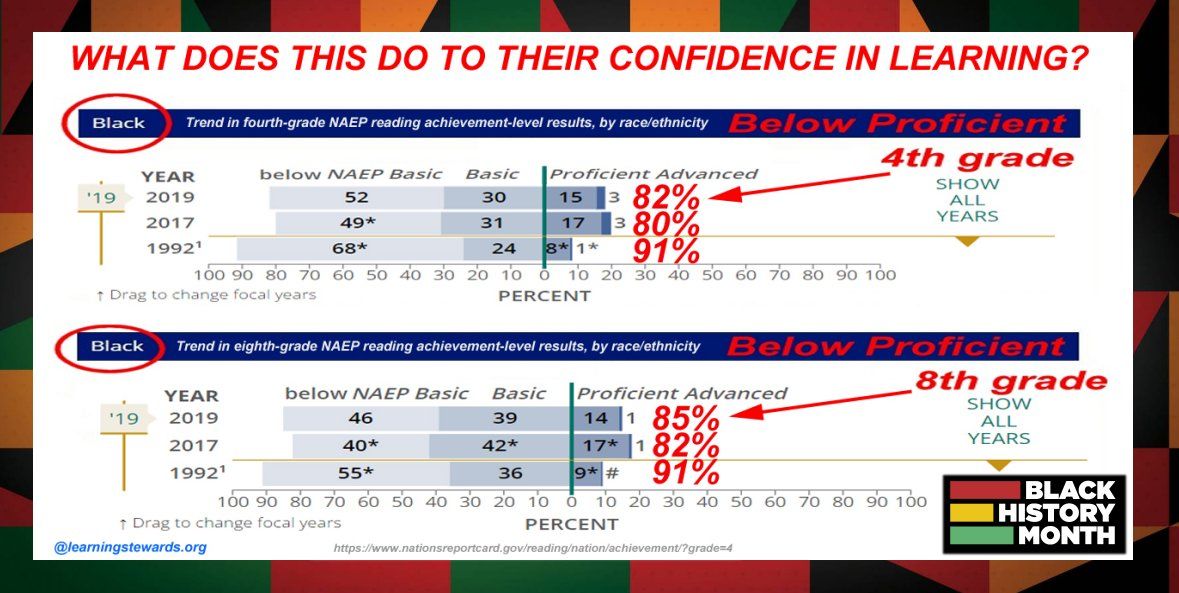
And, again, it’s not just Black civil right leaders – Most U.S. kids are in danger and that effects us all.
| Most Adults and Kids Less Than Proficient | 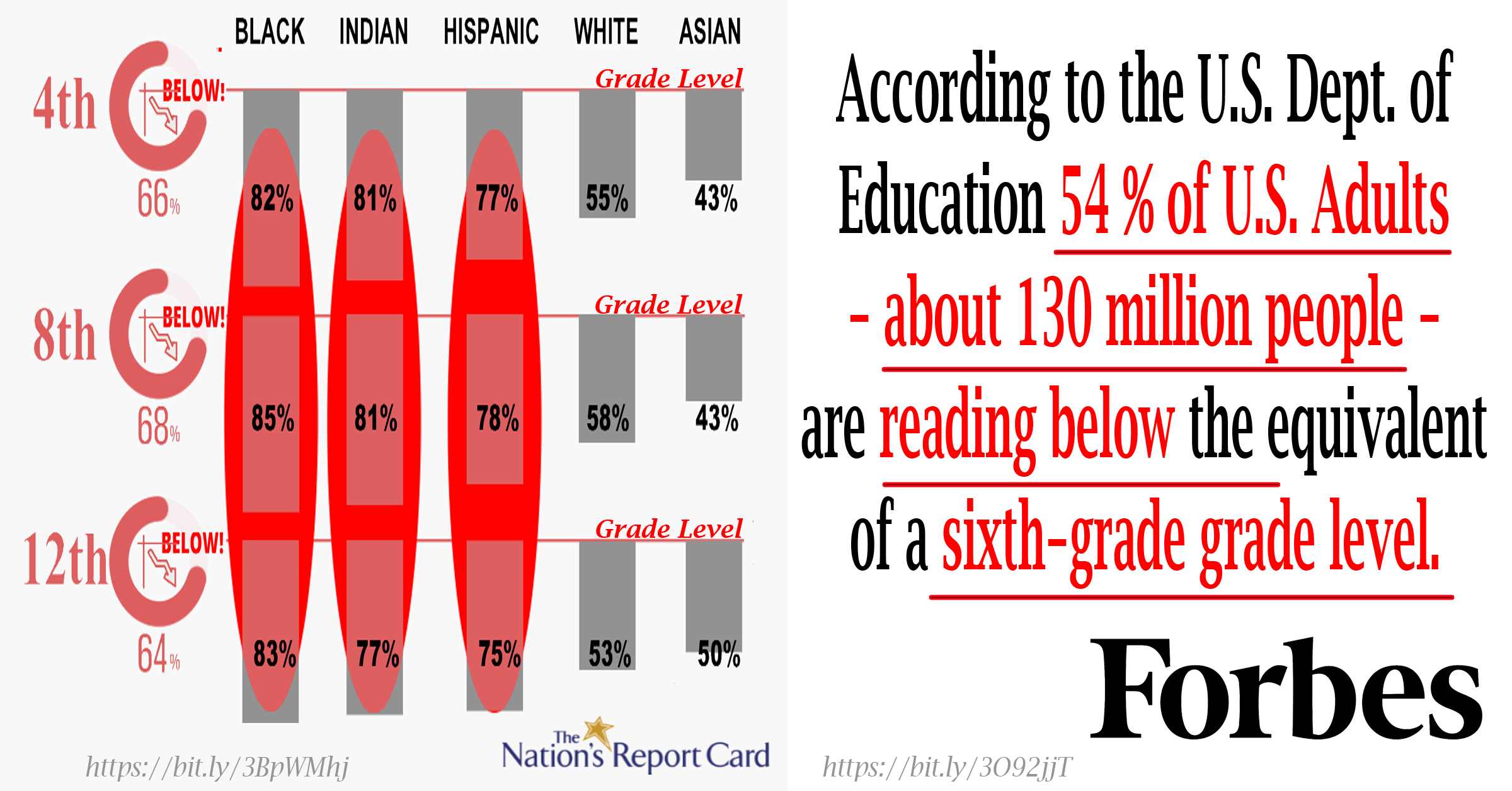 |
| Learning to Read | 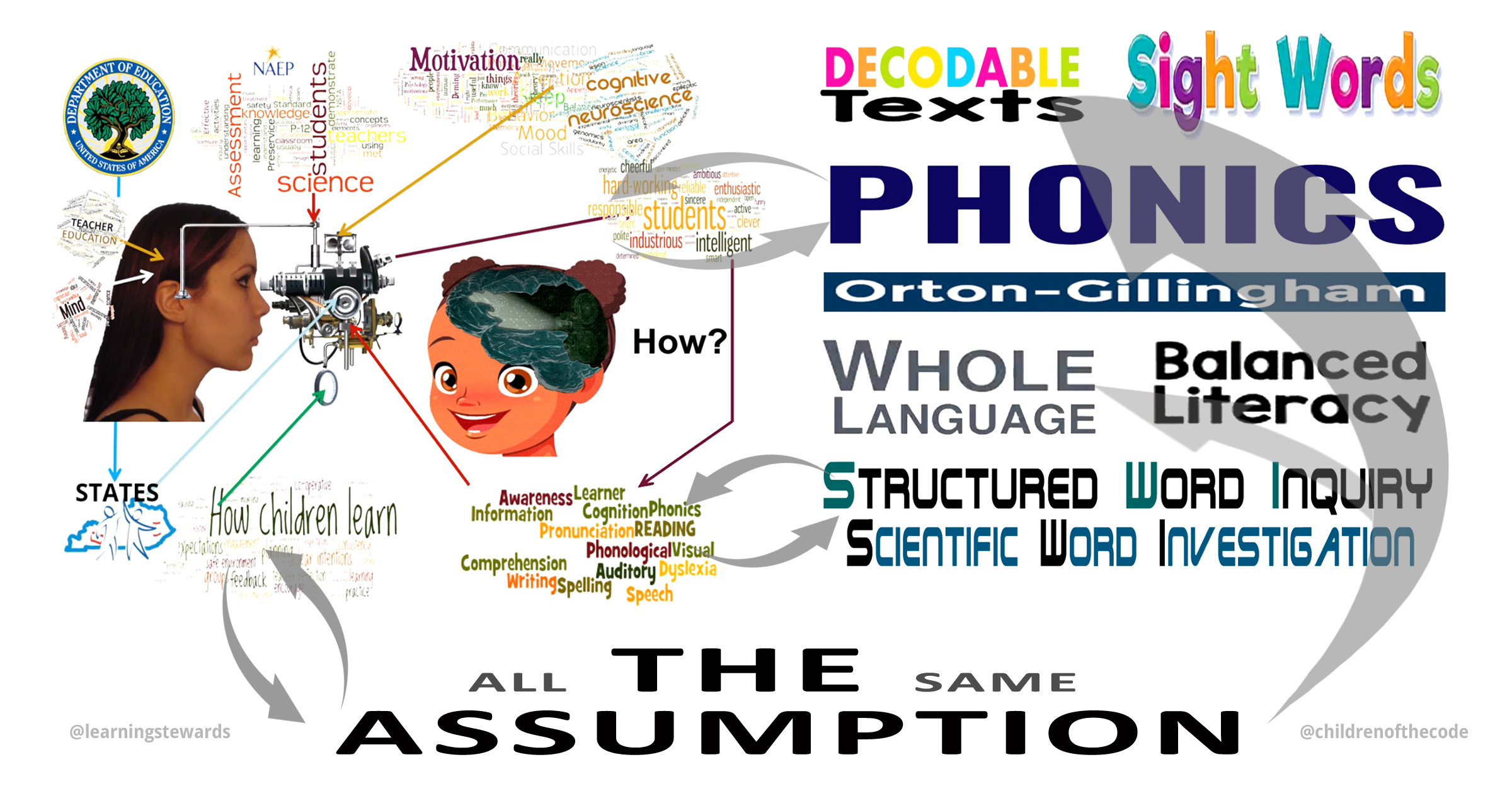 |
| Steinbeck’s Appalled Agony | 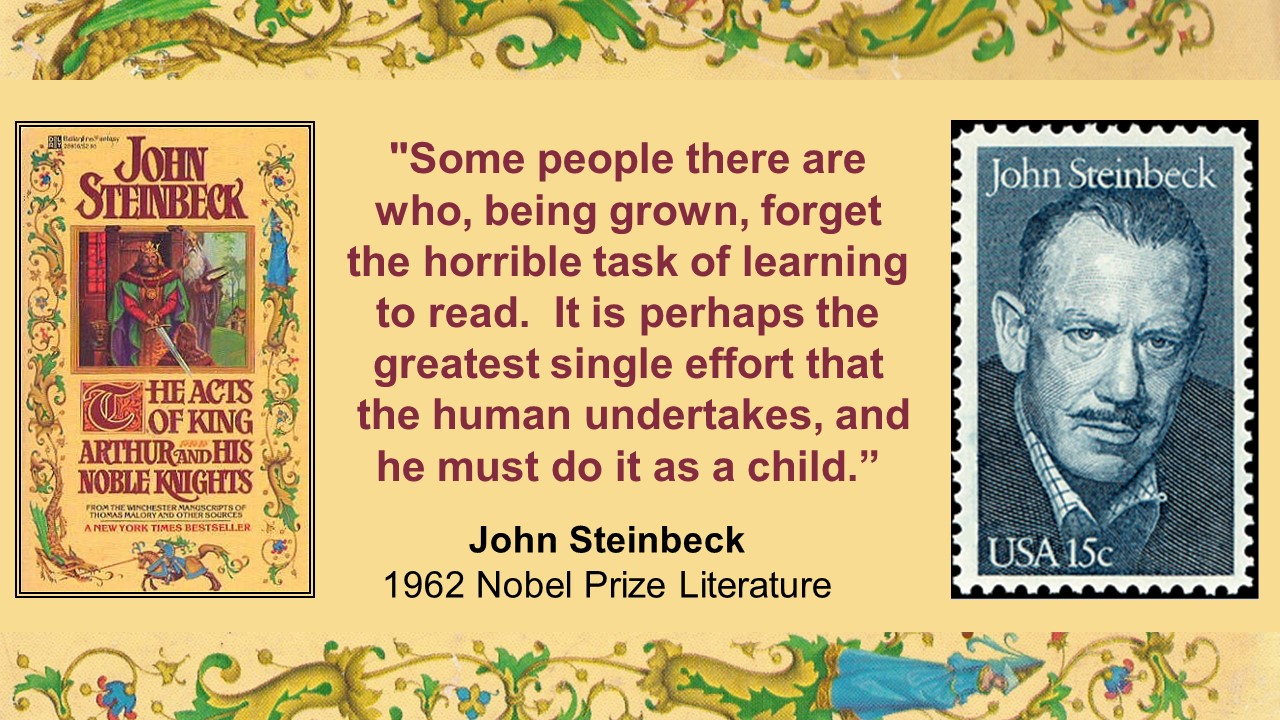 |
| Flawed Assumptions | 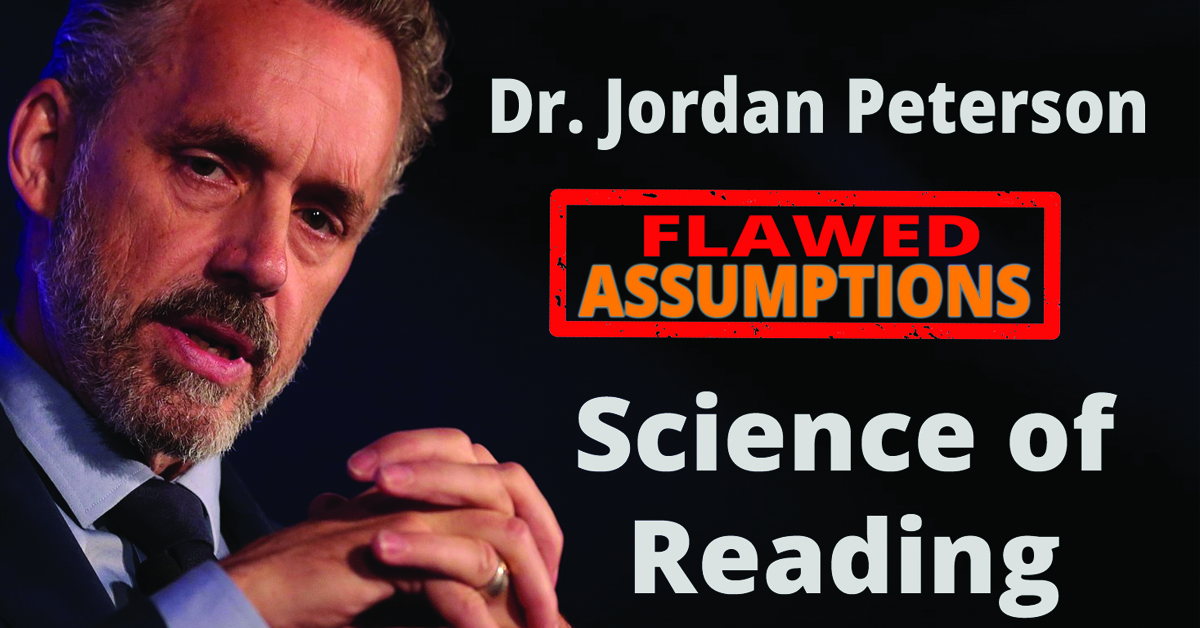 |
| Challenging the Experts | 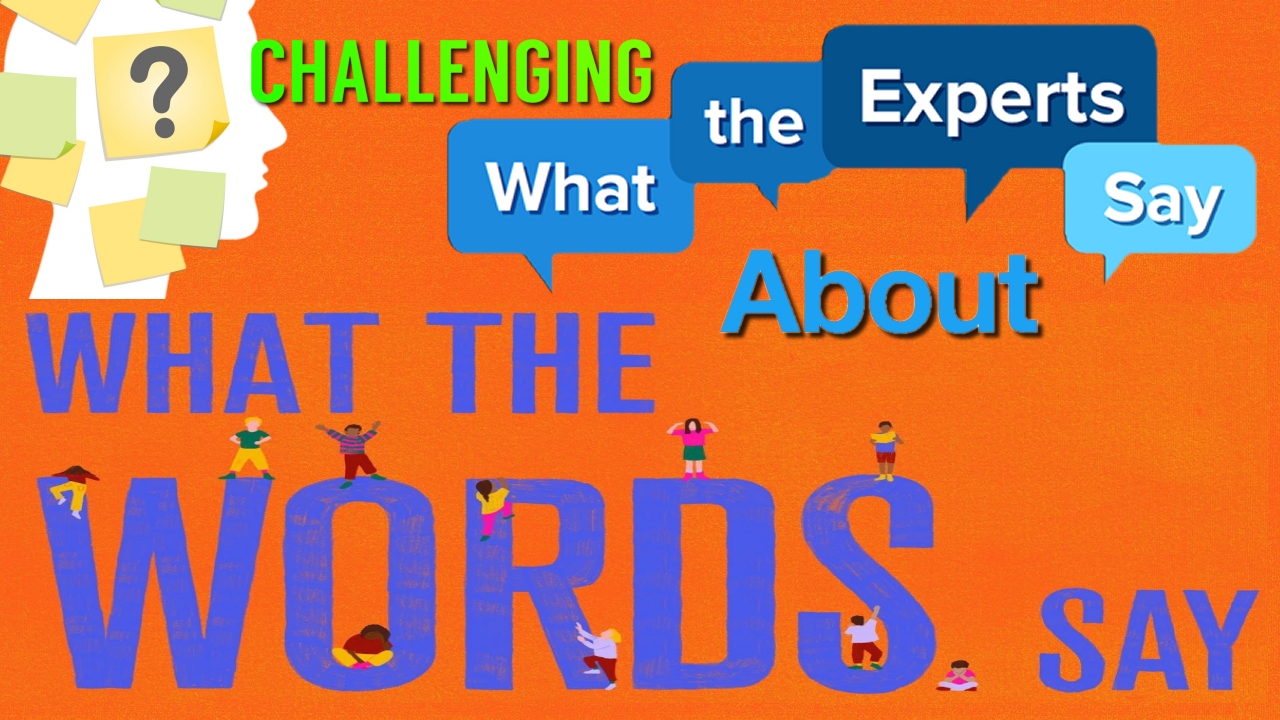 |
| Reading Shame | 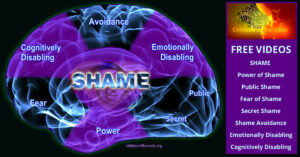 |

[…] Literacy Learning: The Fulcrum of Civil Rights […]
[…] Literacy Learning: The Fulcrum of Civil Rights […]
[…] Literacy Learning: The Fulcrum of Civil Rights […]
[…] Literacy Learning: The Fulcrum of Civil Rights […]
[…] Literacy Learning: The Fulcrum of Civil Rights […]
[…] Literacy Learning: The Fulcrum of Civil Rights […]